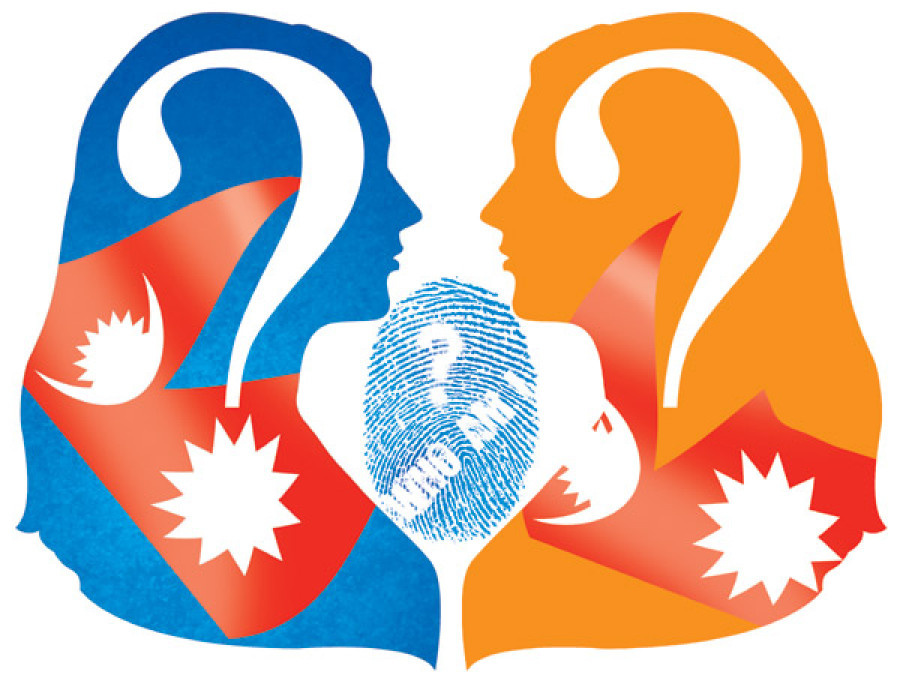Opinion
Conjunction conundrum
Now that the opposition has agreed to the ‘or’ provision on citizenship, it is up to the ruling parties to follow through.
Subin Mulmi
The battle for ‘or’ not ‘and’ seems to be going the full distance and will most likely not be resolved until the constitution is finally promulgated. It is fundamental to understand that the ‘or’ provision that is being demanded is regarding citizenship by descent and not naturalisation. The proposed provision already allows citizenship through mother by naturalisation. As naturalisation is not a right of a person but depends on the discretion of the state, the civil society demand is to convert this discretionary provision into a rights-based provision, thereby guaranteeing every person’s fundamental right to acquire citizenship through mother.
A checkered history
On January 12, during a meeting of the Political Dialogue and Consensus Committee (PDCC), top leaders from across the political spectrum had agreed to change the proposed ‘father and mother’ provision on citizenship and replace it with the more gender-friendly ‘father OR mother’ provision. CPN-UML Chairman KP Oli even remarked that ‘and’ had been mistakenly included and would be amended immediately. However, the same night witnessed UML leaders, specifically former prime ministers Madhav Kumar Nepal and Jhala Nath Khanal, holding back consensus on the issue by stating that citizenship remained a contentious issue and must be resolved later.
On January 14, Madhav Nepal clarified the UML’s position, reasserting the party’s support for the ‘or’ provision. The Nepali Congress (NC), which stayed mum during the PDCC meeting, revealed its official standpoint on the ‘or’ provision on January 15 after a delegation of women NC CA members submitted a memorandum to Prime Minister and NC President Sushil Koirala. The ‘Citizenship in the name of the mother’ campaign, which has vocally advocated for the ‘or’ provision, were assured by top leaders that the new constitution would be gender friendly and under no circumstances would it infringe on the rights of mothers to confer citizenship to their children.
Though backtracking by political leaders on prior commitments is nothing new, it is difficult to understand the reason behind the continuous attempts by the UML and NC to subside this issue. The right of women to confer citizenship to their children has triggered heated arguments and had generated a fair amount of controversy in the previous CA wherein UML-NC leaders adamantly advocated for the discriminatory ‘and’ provision. When some women CA members argued against including a more regressive provision than what was enshrined in the Interim Constitution, these ruling parties repeatedly referred to the open border as the sole reason behind adopting a more restrictive approach.
Even in the second CA, the Constitutional Record Study and Determination Committee categorised the citizenship issue as a ‘settled’ issue despite it not having gathered consensus in the previous CA. The political manifesto of the NC clearly identifies the citizenship issue as a contentious issue. The categorisation of citizenship as a settled issue by the parties resulted in limited discussions on this topic and failed to generate the debate that was necessary inside the CA.
However, the Preamble Sub-Committee of the Constitution Drafting Committee and New Issues Identification Sub-Committee of the PDCC advised its mother committee to hold discussions on this issue. Though the other parties showed interest in deliberating on this issue, it was once again impeded by the two parties.
In NC-UML hands
After continuous efforts from civil society and growing international pressure, the opposition’s 30-party alliance succumbed to demands and officially agreed to the ‘or’ provision. This put the ball officially in the court of the two ruling NC and UML parties. This time, they readily agreed to amend the objectionable provision but when the opportunity presented itself in the meeting of the PDCC, they
backtracked yet again.
Now, the road ahead looks pretty clear. Civil society will no doubt exert more pressure on the parties and they will once again take the same route by making phony commitments. If and when the constitution is passed, the ‘and’ provision will probably not be amended. The explanation from the two ruling parties would then be that they had previously agreed on the ‘or’ provision for naturalised citizenship but not the ‘or’ provision that would allow citizenship of descent through the mother.
Mulmi is a human rights lawyer




 22.12°C Kathmandu
22.12°C Kathmandu










